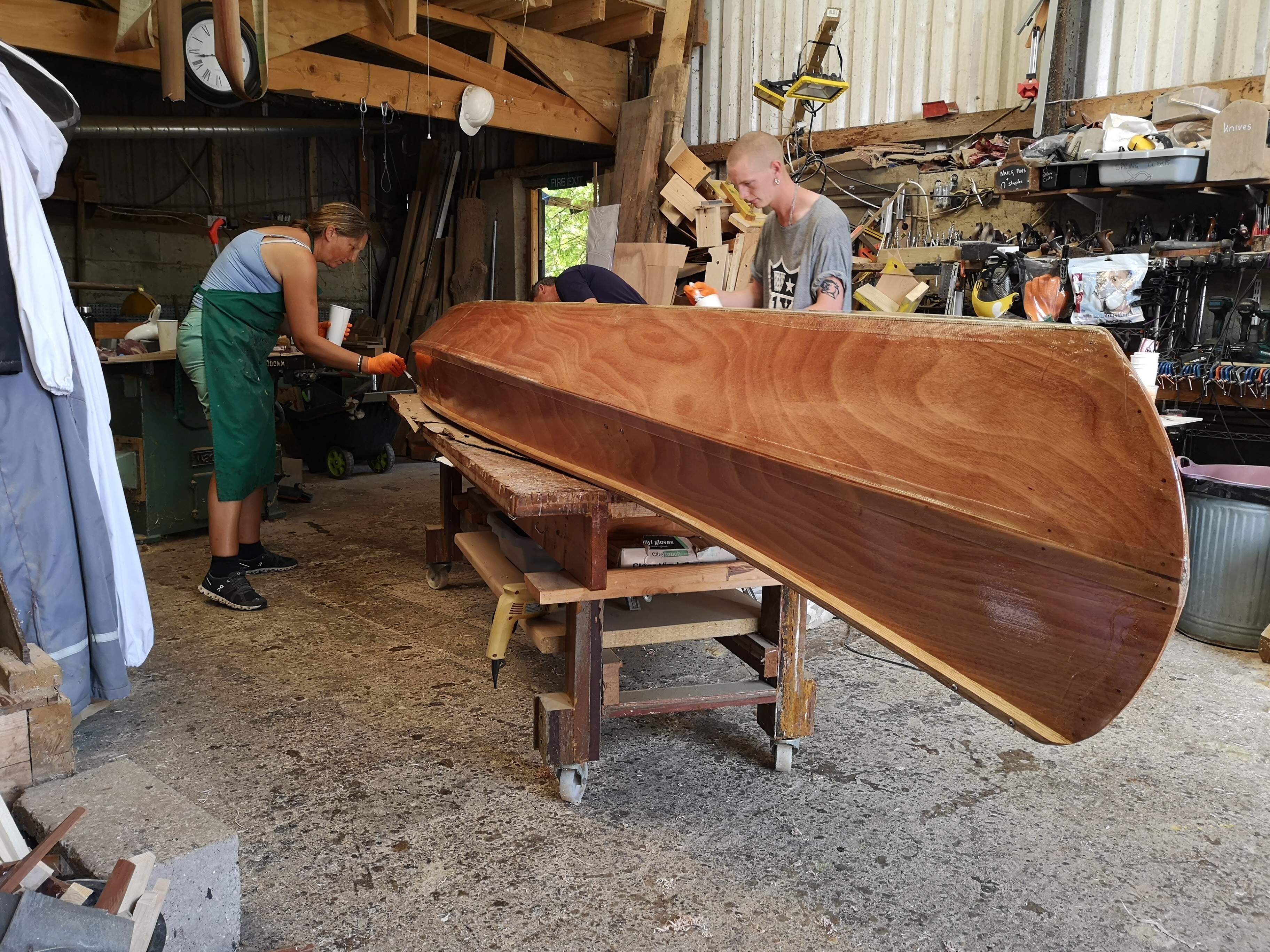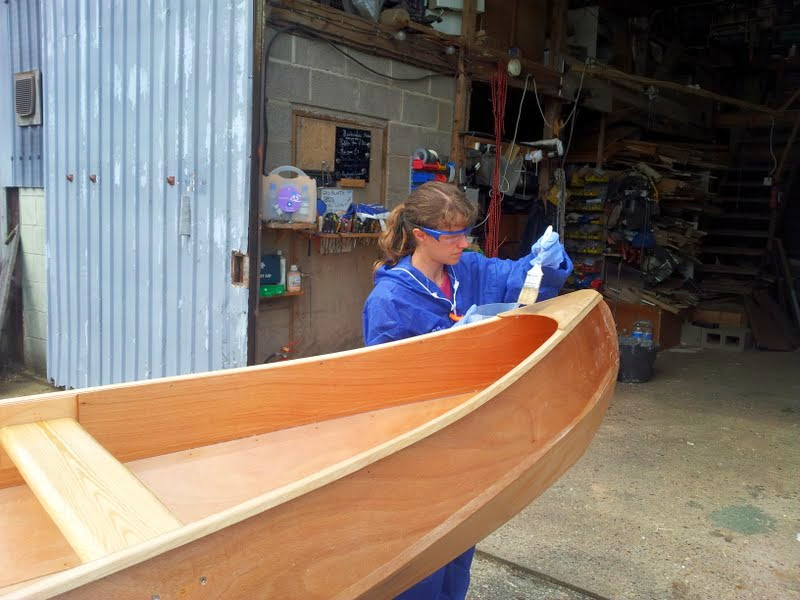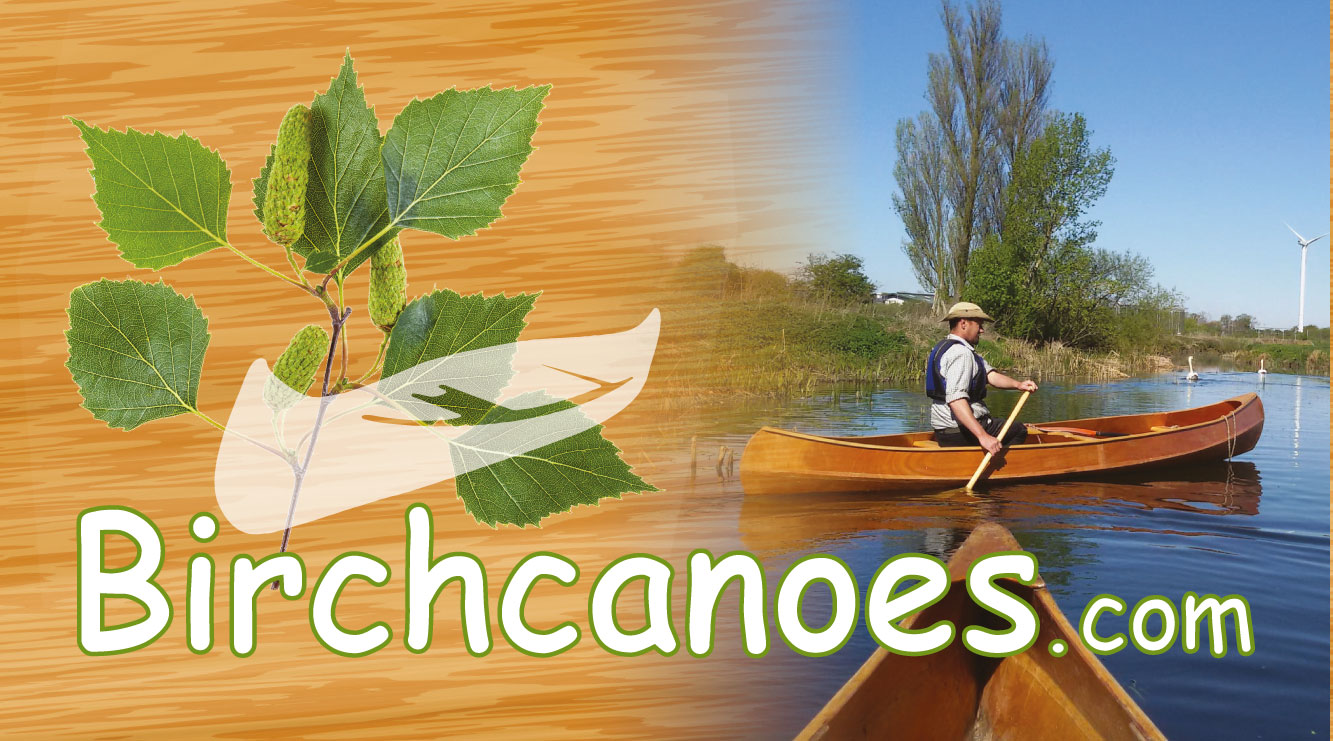Key materials for canoe building
BS1088 Okoume Marine Ply
Okoume is an amazingly durable timber, imported from Gabon in Africa, where it is grown on plantations in a sustainable manner. The logs are rotary peeled ( like a pencil sharpener) and the result is very little of the trunk is wasted, unlike traditional sawmills. The BS1088 we use is made to strict quality standards, and is stunning to look at after the resin has been applied, as you can see on the photo above. In addition we use Exterior Birch ply for the base of the canoes. This is from the vast virgin forests of Russia and is strong, stiff and durable. Our earliest canoes were made entirely of birch (hence the name of the business) but we moved to using Okoume for the upper panels when we found how beautiful it is,
Ash gunwale strips
A key feature of our canoes are the gunwale strips, which run from stem to stern in a single piece. We make these here on site, from locally sourced knot free ash ( Fraxinus excelsior). For the technically minded these are 6000 mm long, and have a cross section of 18mm x 18mm. As you can imagine, such dimensions are not available in the trade. Ash has tremendous flexibility and strength, and the moment when the gunwale strip is first fitted to the canoe ( by gluing, and screwing using A2 Stainless steeel screws) is generally a photo opportunity.
Lloyds approved resin
Our lovely canoes owe their water tightness to a traditional boat building resin based on Polyester technology (not epoxy). There is no question that applied correctly, epoxy can be mechanically stronger than Polyester, but it suffers badly from UV degradation, and there are health issues associated with long term exposure to epoxy. We have a canoe in storage here made using Polyester resin in 1973, and it is still looking in excellent condition. Polyester resin is easier to apply,and we have been using this resin here since 1993.


